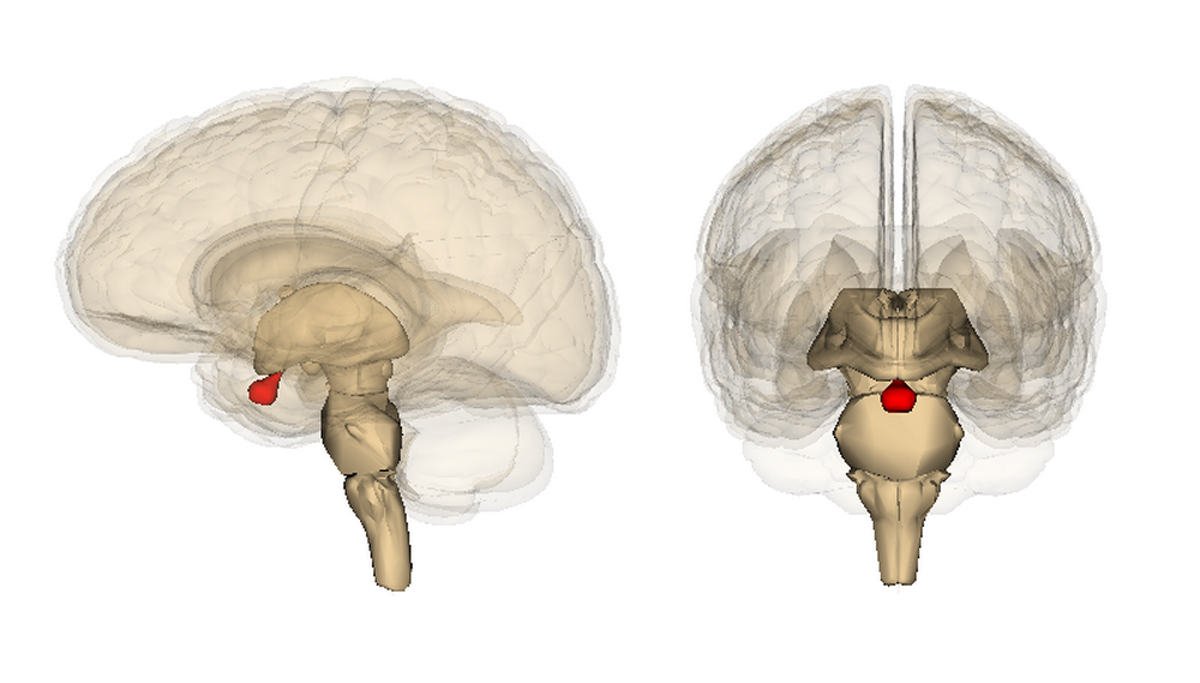Table of Contents
Men and women of all ages and all races have the same likelihood of developing pituitary tumors. The tumor is most likely to be discovered during a person's 20s, 30s, or 40s, but it can occur at any stage of life. Pituitary tumors are found on autopsy, even when the pathologist is not looking for them, about 25 percent of the time. It is rare for a pituitary tumor to become cancerous. This occurs in only about 1 in 10,000 people in any given year.

What Does the Pituitary Gland Have to Do with Self-Image?
The pituitary gland receives messages from another gland in the brain, the hypothalamus, to create the chemicals that instruct glands in other parts of the body to make hormones. A tumor in the pituitary gland can interfere with its ability to produce these chemical messengers, or cause it to produce them in excess.
A few of the hormonal imbalances that affect a person's self-image that can be caused by tumors of the pituitary gland include:
- Panhypopituitarism. When the pituitary is unable to produce any of its chemical messengers in the right amounts, the effect is severe depression and loss of interest in life — among other sometimes life-threatening hormone deficiencies.
- Cushing disease. When the tumor presses on the pituitary so that it cannot generate the corticotrophin hormone necessary to stimulate the adrenal glands, there can be severe fatigue, swelling, and even death.
- Hyperprolactinemia. When the pituitary gland is unable to produce oxytocin, people don't feel as attached to others. They find it hard or impossible to fall in love. Also distressing is the fact that the reproductive organs may shrink, in both men and women. Men's bodies may cease to produce sperm, and women of reproductive age may have irregular periods.
Depending on the person, a tumor in the pituitary gland can any of a number of effects on personality and self-image.
- Some people become angrier, more irritable, less trusting, and/or paranoid when they develop a pituitary tumor. Others become calmer, more open, and more at ease with themselves when they develop a pituitary tumor.
- Memory loss can occur when there is a pituitary tumor. The person suffering the memory loss may or may not be aware of it.
- Disinhibition, meaning losing one's filter and doing things one usually would not, is common with certain kinds of pituitary tumors. A sexually restrained person may start seeking relationships with total strangers or inappropriate targets (children, the elderly, spouses of other people, etc.). An ethical person may start shoplifting, and a normally peaceful person may start picking fights.
What can you do if you notice changes in yourself? What can you do if the people you care about most start telling you that your behavior has changed drastically in recent times, even if you don't believe them?
The answer is already obvious. See a doctor. You may need the services of a psychiatrist, a neurologist, a neurosurgeon, or all three. But don't accept a purely psychological explanation of your condition if it does not make sense to you. Pituitary tumors usually can be treated and regular life resumed — if you don't make serous mistakes while you are ill.
Read More: Bioidentical hormone replacement therapy (BHRT)
What can you do if you notice changes in a loved one?
Communication is essential. Even if the reaction is not what you think is fair, you need to let your loved one know there is a problem. Protect loved ones from embarrassment when possible. And encourage them to get medical help before they need defense attorneys.
- Fernandez-Balsells MM, Murad MH, Barwise A, et al. Natural history of nonfunctioning pituitary adenomas and incidentalomas: a systematic review and metaanalysis. J Clin Endocrinol Metab. Apr 2011. 96(4):905-12.
- Photo by shutterstock.com
- Photo courtesy of Life Science Databases(LSDB) by Wikimedia Commons : commons.wikimedia.org/wiki/File:Pituitary_gland_image.png


Your thoughts on this